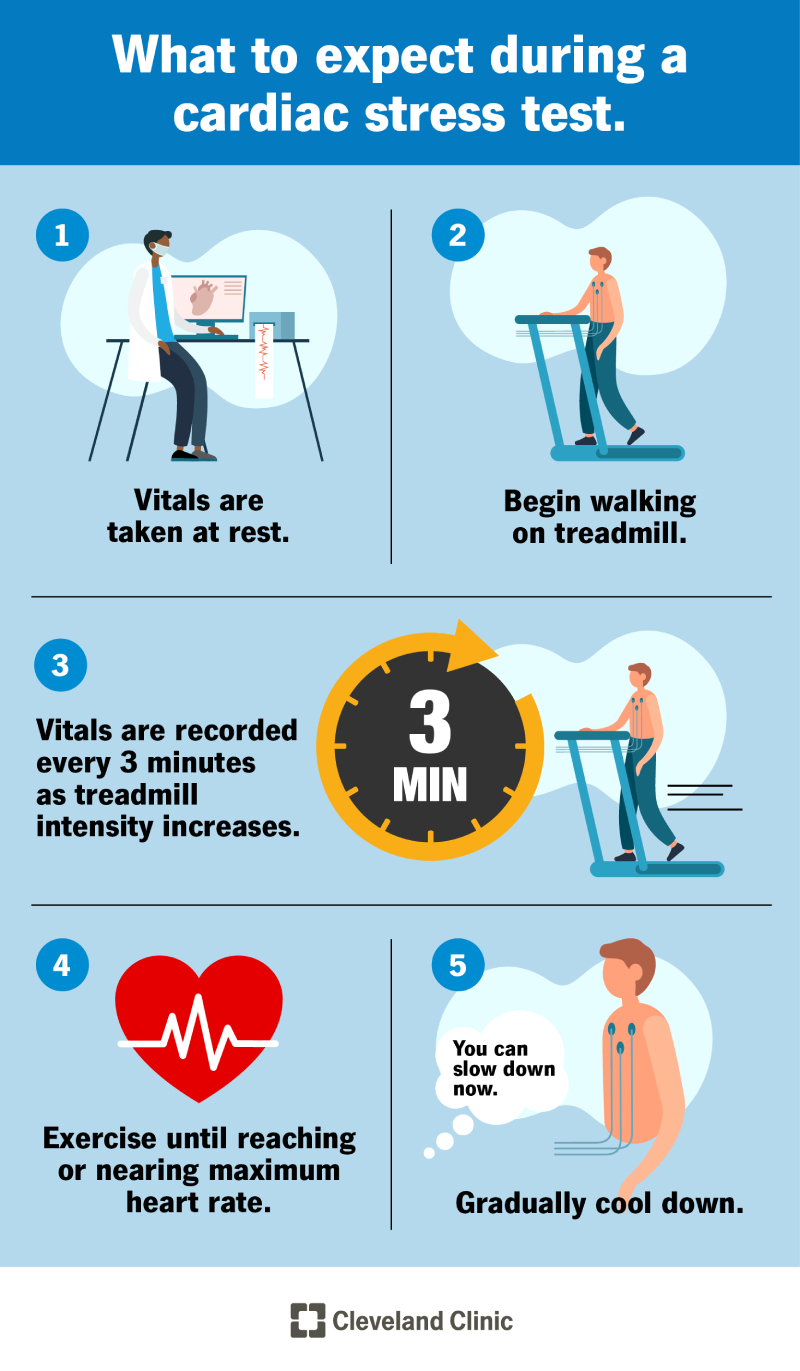Diagnostic testing: Stress test
An EKG is not a covered benefit when used for stress test screening purposes or as part of a routine physical examination. Please do not bill the two procedures together.
Exercise Stress Test
An exercise stress test helps determine how well your heart responds during times when it's working its hardest. It typically involves walking on a treadmill or pedaling on a stationary bike while hooked up to an EKG to monitor your heart’s activity.

What is a stress test?
A stress test is a commonly performed procedure aimed at assessing:
- The cardiac pumping function.
- The adequacy of blood supply to the heart.
- The patient's physical performance during activities such as treadmill or stationary bike exercise.
- The reproducibility of symptoms (chest discomfort, shortness of breath, palpitations, or dizziness) during physical activity.
These tests facilitate the identification and evaluation of specific cardiac issues, including:
- Myocardial or valvular abnormalities.
- Coronary blood flow adequacy.
- Cardiac electrical stability at rest and during exertion.
Cardiac stress tests aid healthcare providers in determining the necessity of further, often more invasive, testing for confirming a diagnosis, or if treatment could reduce the patient's risk of heart attack and improve their well-being.
How does a stress test work?
A cardiac stress test initiates by inducing the patient's heart to pump harder and faster. For many individuals, this involves walking on a treadmill or riding a stationary bicycle. Hence, the test is commonly referred to as an exercise stress test.
Healthcare professionals evaluate the patient's response to the increased workload by measuring:
- Blood pressure.
- Heart rate.
- Oxygen levels.
- Electrical activity in the heart.
- The level of exertion of the heart in comparison to others of the same age and sex.
Indications for a Stress Test
A patient may require this test to identify heart issues such as:
- Congenital heart disease.
- Congestive heart failure.
- Coronary artery disease.
- Heart valve disease.
- Hypertrophic cardiomyopathy.
Individuals with high-risk occupations (e.g., pilots or professional athletes) may also undergo stress tests.
Criteria for Cardiac Stress Test
This test may be suitable for patients experiencing symptoms of heart disease, such as:
- Angina, characterized by chest pain or discomfort due to inadequate blood flow to the heart.
- Arrhythmia, which involves a rapid or irregular heartbeat.
- Shortness of breath (dyspnea).
- Feelings of lightheadedness or dizziness.
Stress tests are also applicable to individuals diagnosed with heart disease who:
- Intend to commence an exercise regimen.
- Are undergoing treatment, and healthcare professionals need to assess its effectiveness.
- Are at a heightened risk of complications due to personal or family history of heart disease.
- Have diabetes or other underlying conditions that elevate the risk of heart disease.
- Require non-cardiac surgery, and healthcare providers need to evaluate the risk of complications.
Providers may also conduct stress tests on individuals without known heart disease or symptoms to evaluate their risk of heart disease and heart attacks, particularly if they have other risk factors such as diabetes, high blood pressure, high cholesterol, or a family history of premature heart disease.